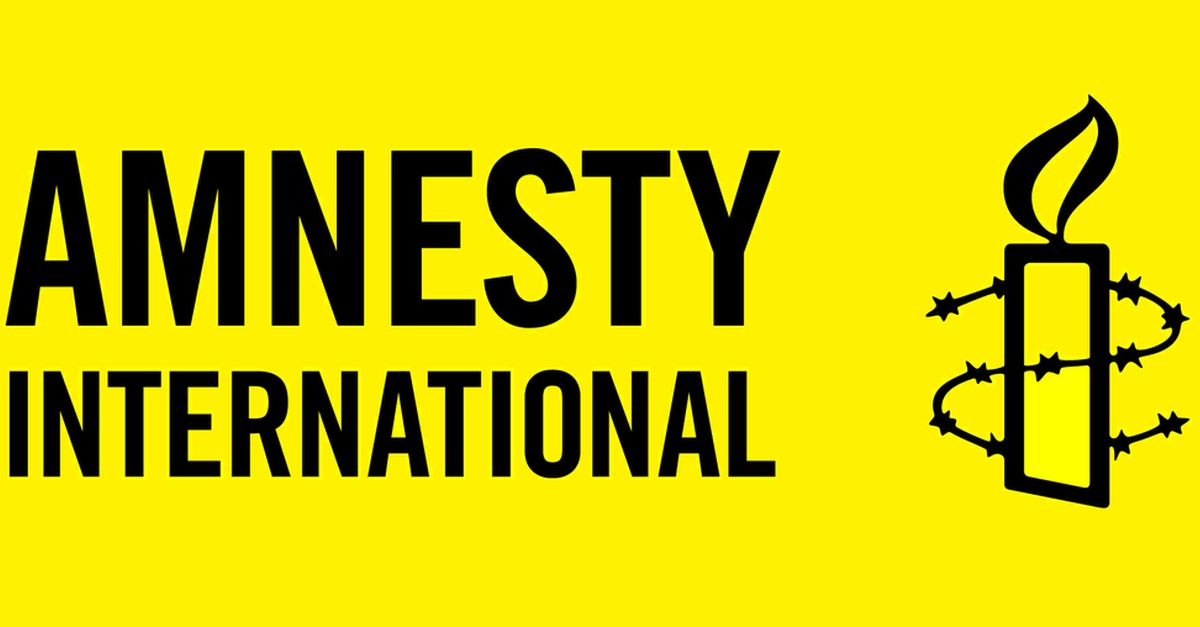
Ukraine: further armed conflict would be 'devastating' for millions
Published By Amnesty International UK [English], Fri, Jan 28, 2022 5:35 AM
Russia’s military’s record in Ukraine, Syria and Chechnya littered with war crimes and other atrocities
‘It is frightening to imagine what scale the refugee crisis could reach in the event of escalating hostilities in Ukraine’ - Agnès Callamard
Amnesty International has warned that an escalation of the armed conflict in Ukraine could have “devastating” consequences for human rights in the region - threatening civilian lives, livelihoods and infrastructure, potentially sparking acute food shortages and causing refugee flows which could amount to a “continent-wide humanitarian disaster”.
Any enlarged conflict will further undermine human rights in the region through the likelihood of protracted guerrilla warfare in Ukraine, accompanied by illicit outflows of weapons and an influx of unaccountable private military contractors. Russia’s recent military record (see below) gives rise to particular concern.
The economic devastation and its repercussions for the region - including in European countries reliant on Russian gas passing through Ukrainian territory - may be huge.
The present situation in parts of Ukraine is already serious - with rising prices for basic food and other goods, including medical supplies. This is particularly being felt by the very old, the very young and those on low incomes. Education has also been affected, with schools closing intermittently over the past two weeks amid heightened security concerns.
“The consequences of actual military force are likely to be devastating.
“The history of Russia’s military interventions - be it in Ukraine or Syria, or its military campaign at home in Chechnya - is tainted with blatant disregard for international humanitarian law. “The Russian military has repeatedly flouted the laws of war by failing to protect civilians and even attacking them directly. Russian forces have launched indiscriminate attacks, used banned weapons and sometimes apparently deliberately targeted civilians and civilian objects - a war crime.
“If the West and Russia enter into a more bitter confrontation, this could potentially lead to more active intervention of the parties in regional conflicts throughout the world, weaponisation of energy policy and more countries prepared to use force as part of their foreign policy.”
Russia’s military forces have a disturbing human rights record. For example, in Syria in 2015 a series of Russian airstrikes on residential areas in Homs, Idlib and Aleppo between September and November killed at least 200 civilians. And in 2020, Amnesty reported that Russian aircraft were targeting both schools and hospitals in Syria, some of which the UN had specified should be protected from any attacks.
In the ongoing conflict in Donbas in eastern Ukraine, Russia-backed separatist forces violated international humanitarian law by using imprecise explosive weapons in populated civilian areas, as did Ukrainian forces. They also stationed and fired these weapons from homes and civilian infrastructure.
Amnesty is particularly concerned by the prospect of the creation of new militias on Ukrainian territory. Such Russia-backed armed groups in Donbas are notorious for their disregard for the norms of international humanitarian law and for a total lack of accountability, as were Ukrainian pro-government paramilitaries. All sides to the Donbas conflict have violated international humanitarian law leading to the displacement of more than a million people and the deaths of more than 13,000.
In military conflict, civilians must be protected and anyone who commits abuses must be held to account. Amnesty will be monitoring the situation closely to expose violations of international humanitarian law and international human rights law by all parties.
In 2014-15, the conflict in eastern Ukraine provoked a full-blown human rights crisis - the consequences of which continue to be acutely felt to this day. Millions of people were forced to leave their homes, and those who returned or remain in the conflict zone have since lived a hand-to-mouth existence.
Hundreds of people have been killed in extrajudicial executions and other unlawful killings, with torture, abductions, enforced disappearances and arbitrary detentions committed by separatist and government forces.
According to Ukraine’s Ministry of Social Policy, about 1.45 million people are still internally-displaced after fleeing the conflict in Donbas and from occupied Crimea.
Agnès Callamard added:
Press release distributed by Media Pigeon on behalf of Amnesty International UK, on Jan 28, 2022. For more information subscribe and follow